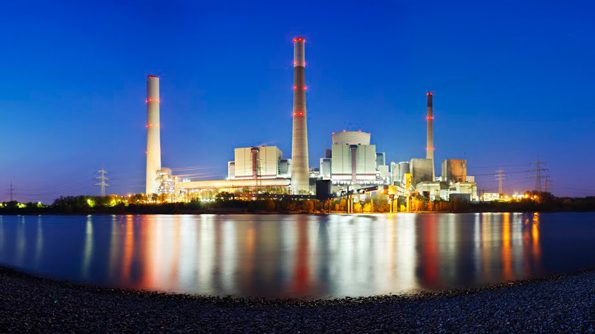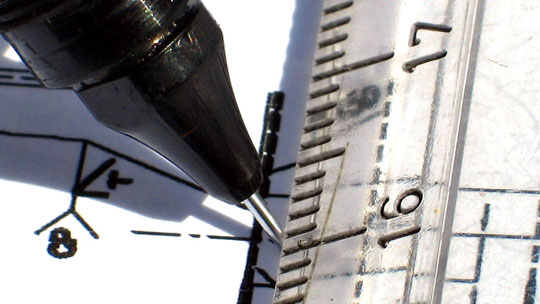3 min read
The 9th International Energy Regulation Forum Brought Diverse Views of European Energy Market Integration (Czech language)
The ninth year of the International Energy Regulation Forum took place on 20 and 21 March at the Ambassador Hotel, with the participation of regulators and energy company representatives from dozens of European countries. Political representatives of the Czech Republic and members of the European Energy Commission were also in attendance. Auspices were provided by Prime Minister Petr Necas, by the Ministry of Industry and Trade of the Czech Republic and the Confederation of Industry of the Czech Republic. The Arthur D. Little was the organizer and professional guarantor.
Key topics were new trends and directions in energy sector regulation, the consolidation of energy markets in Central and Eastern Europe, future development of the unified European energy market in 2013 – 2020, results of the economic assessment of costs and benefits in implementing intelligent metering systems and experience with the introduction of new regulatory mechanisms in Europe. Conclusions from the two-day conference showed the entirely divergent views of European institutions and representatives of energy operators of integration of the European energy market.
Key conclusions of the IX. International Energy Regulation Forum:
-
The sector attractiveness is declining, it is necessary to create a stable environment
Energy companies, which have the opportunity to invest, prefer to focus on Turkey or Africa. In terms of investment, the EU is less attractive.
-
The role of regulator - is increasing, it is necessary to change priorities and define a dialogue
The approach to regulation has to be amended. The priority should be the supervision of output (reliability, quality, security) as opposed to the strict regulation of input. The regulator should create an environment that will allow investors to develop business and support investments and create efficient wholesale and retail competition.
-
The unified market is still out of sight
In the interest of European energy market we do everything in our power. But it is already obvious how this project is complex and all elements of the common market in all regions not seem to be realistic in 2014. The representative of ERRA highlighted those obstacles, which hinder efficient competition and new investment in generation. CEER representatives were pessimistic about the achievement of the single energy market, unlike the European Commission.
-
Building new energy plants is not possible at a price of 38 EUR/MWh without a state support
At the current commodity prices, conventional power plants are not worth building. The breaking point is somewhere in the range of 60 to 65 EUR/MWh versus today’s 38 EUR/MWh. One of the solutions could be a state guarantee on electricity buyout, meaning a price and volume guarantee. The idea to create an entirely new model for electricity production and market operation was also presented at the forum.
-
Investments of 1000 billion EUR in 2010 to 2020
Based on a study by DG Energy, it will be necessary to invest into grids (distribution – 400 billion EUR, transmission – 200 billion EUR and production capacities – 500 billion EUR). DG Energy expects the investments to be made by private investors and national institutions. The study does not mention how much this will increase the price of electricity for end customers.
-
Electricity prices are falling, however for customers are growing
Electricity prices have declined to 38 EUR/MWh. However, total prices are increasing, mainly because of support for renewable sources, stagnating consumption and increased demands on transmission capacity. Therefore, prices for end customer will continue to grow. The lesson from the previous development may be the implementation of an obligation to conduct a thorough market impact analysis before making any fundamental changes in energy legislation.
-
Strengthening the security, reliability and quality of supplies remains on a national level. In the event of an outage, the end consumer will contact their distributor. The three basic objectives of the European Union – sustainability, competitiveness and security of energy supplies – are not always support each other and they cannot be fully attained simultaneously.
The next jubilee 10th International Energy Regulation Forum will take place on 19 to 20 March 2014.
3 min read
The 9th International Energy Regulation Forum Brought Diverse Views of European Energy Market Integration (Czech language)
The ninth year of the International Energy Regulation Forum took place on 20 and 21 March at the Ambassador Hotel, with the participation of regulators and energy company representatives from dozens of European countries. Political representatives of the Czech Republic and members of the European Energy Commission were also in attendance. Auspices were provided by Prime Minister Petr Necas, by the Ministry of Industry and Trade of the Czech Republic and the Confederation of Industry of the Czech Republic. The Arthur D. Little was the organizer and professional guarantor.
Key topics were new trends and directions in energy sector regulation, the consolidation of energy markets in Central and Eastern Europe, future development of the unified European energy market in 2013 – 2020, results of the economic assessment of costs and benefits in implementing intelligent metering systems and experience with the introduction of new regulatory mechanisms in Europe. Conclusions from the two-day conference showed the entirely divergent views of European institutions and representatives of energy operators of integration of the European energy market.
Key conclusions of the IX. International Energy Regulation Forum:
-
The sector attractiveness is declining, it is necessary to create a stable environment
Energy companies, which have the opportunity to invest, prefer to focus on Turkey or Africa. In terms of investment, the EU is less attractive.
-
The role of regulator - is increasing, it is necessary to change priorities and define a dialogue
The approach to regulation has to be amended. The priority should be the supervision of output (reliability, quality, security) as opposed to the strict regulation of input. The regulator should create an environment that will allow investors to develop business and support investments and create efficient wholesale and retail competition.
-
The unified market is still out of sight
In the interest of European energy market we do everything in our power. But it is already obvious how this project is complex and all elements of the common market in all regions not seem to be realistic in 2014. The representative of ERRA highlighted those obstacles, which hinder efficient competition and new investment in generation. CEER representatives were pessimistic about the achievement of the single energy market, unlike the European Commission.
-
Building new energy plants is not possible at a price of 38 EUR/MWh without a state support
At the current commodity prices, conventional power plants are not worth building. The breaking point is somewhere in the range of 60 to 65 EUR/MWh versus today’s 38 EUR/MWh. One of the solutions could be a state guarantee on electricity buyout, meaning a price and volume guarantee. The idea to create an entirely new model for electricity production and market operation was also presented at the forum.
-
Investments of 1000 billion EUR in 2010 to 2020
Based on a study by DG Energy, it will be necessary to invest into grids (distribution – 400 billion EUR, transmission – 200 billion EUR and production capacities – 500 billion EUR). DG Energy expects the investments to be made by private investors and national institutions. The study does not mention how much this will increase the price of electricity for end customers.
-
Electricity prices are falling, however for customers are growing
Electricity prices have declined to 38 EUR/MWh. However, total prices are increasing, mainly because of support for renewable sources, stagnating consumption and increased demands on transmission capacity. Therefore, prices for end customer will continue to grow. The lesson from the previous development may be the implementation of an obligation to conduct a thorough market impact analysis before making any fundamental changes in energy legislation.
-
Strengthening the security, reliability and quality of supplies remains on a national level. In the event of an outage, the end consumer will contact their distributor. The three basic objectives of the European Union – sustainability, competitiveness and security of energy supplies – are not always support each other and they cannot be fully attained simultaneously.
The next jubilee 10th International Energy Regulation Forum will take place on 19 to 20 March 2014.



